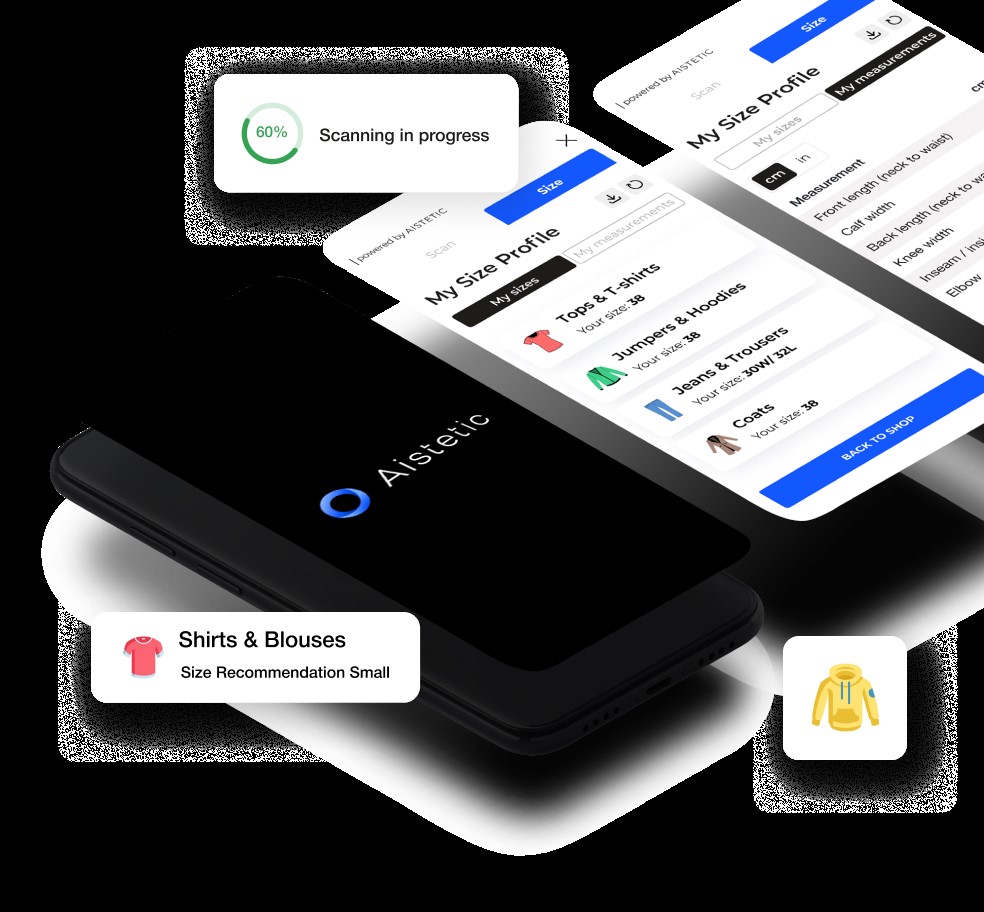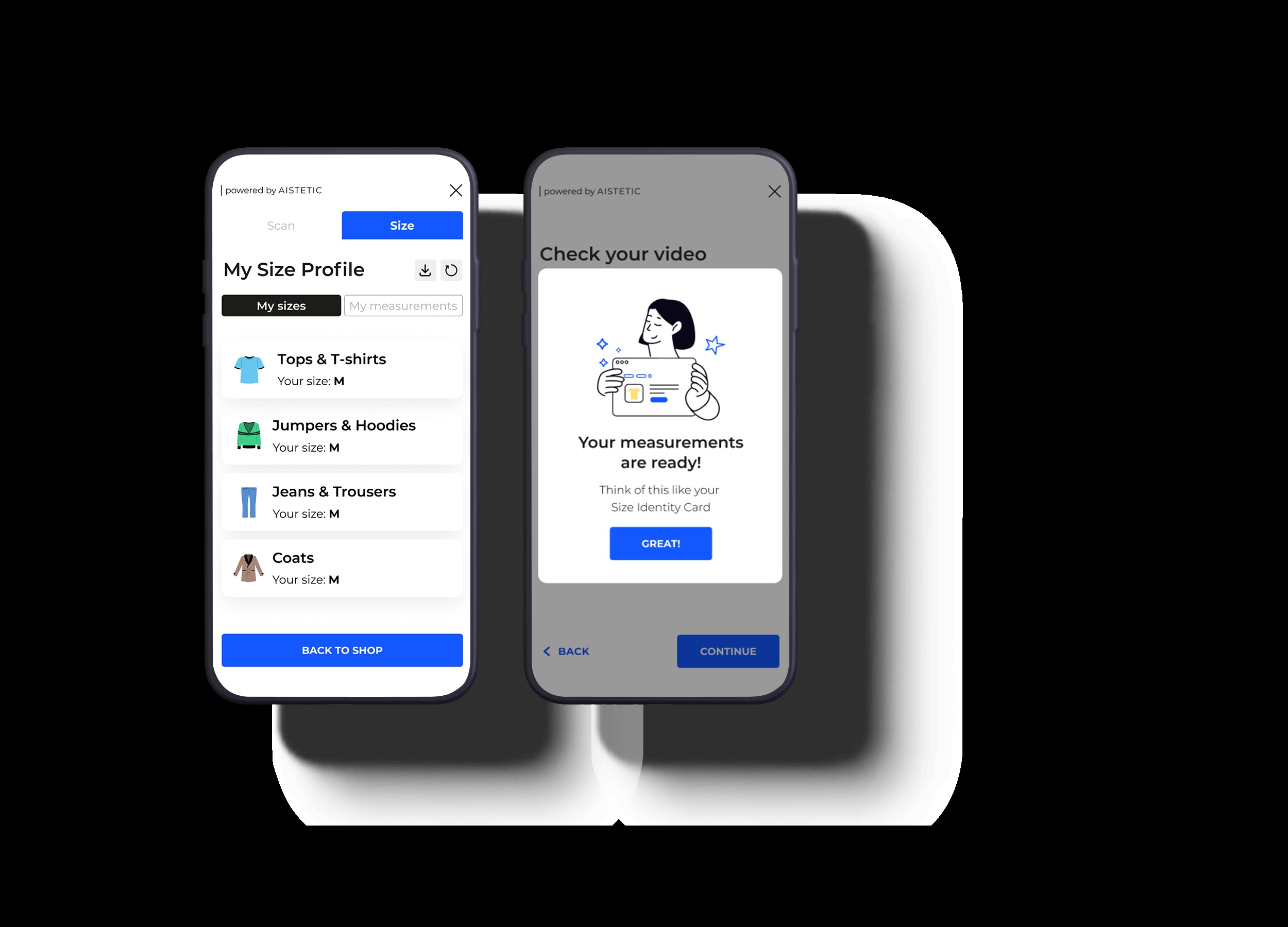Oxford, UK, Feb. 8, 2023 — How is it that in this day and age, with all the technology that is available, that clothing retailers and brands have not been able to standardise their sizing so that a size Large is a Large wherever I shop?
 Aistetic, an Oxford University technology spinout, has come up with an innovative AI solution that provides 3D body measurement and recommendations to solve this problem. Aistetic’s software plugs into existing brands and retailers’ websites and apps so that people can get their measurements and sizing for that specific retailer before purchasing. So, people can shop with confidence using this technology with any mobile phone.
Aistetic, an Oxford University technology spinout, has come up with an innovative AI solution that provides 3D body measurement and recommendations to solve this problem. Aistetic’s software plugs into existing brands and retailers’ websites and apps so that people can get their measurements and sizing for that specific retailer before purchasing. So, people can shop with confidence using this technology with any mobile phone.
In one store, I’m a medium, in another I’m a large and in another I’m an extra large. I know that I’m not the only one to experience this. Surely it should be possible to buy clothing in my size in any shop. But this is not the case, which is something that we have all experienced particularly when shopping online.
The consequence: people are buying and then returning lots of clothing. This can be as high as 50% in some countries[1]. Returns have been the profit drag to retailers growing online businesses and an environmental drain of the polluting fashion sector which the UN estimates as contributing 10% of the world’s pollution[2].
Some people regularly buy one size up and one size down with the intention of returning the two items that don’t fit. Returning items has a knock-on effect which involves registering the return, taking it to the post office, or making a trip back to the store. This all adds up, not just in time or energy but also, importantly, in cost and in the carbon impact it has. To process one return costs £12.88[3]. This excludes any landfill and remerchandising. The carbon footprint of a return can be as high as 4.2 kg of carbon[4] if the garment is taken back into the store. This is something that we often don’t think about.
We have seen recently how Chat GPT-3 has demonstrated the latest useful capabilities of AI. Computer vision and machine learning is now capable of delivering 98% body measurement accuracy[5] from a phone. It’s as simple as doing a 360-degree turn in front of your phone to capture your 3D body reconstruction with all your personal measurements. Aistetic then matches and calibrates your size to that particular retailer and saves it for future purchases as your size profile (this is done in accordance with GDPR).
“We are thrilled to partner with Aistetic to bring these innovative features to our customers,” said Sonya Bachra-Byrne, founder of AVIE and a customer of Aistetic. “We believe that our customers will love the convenience and accuracy of the AI sizing algorithm.”
About Aistetic
Aistetic is a University of Oxford spinout founded in 2019 by Duncan McKay, INSEAD MBA and Phil Torr, Professor of Computer Vision & Deep Learning at the University of Oxford. Aistetic has been awarded two Innovate UK Grants, and one Future Fashion Factory Grant in partnership with the University of Leeds.
Aistetic makes accurate 3D body modelling for ecommerce clothing retailers, fitness, weight loss and digital healthcare providers. Aistetic is on a mission to encourage sustainable fashion development and size inclusivity. Aistetic’s first product is available to ecommerce clothing retailers to reduce returns, increase conversion and retention.
Contact:
Duncan McKay
Email: [email protected]
Telephone Number: 00 44 7557 878 818
Website: https://www.aistetic.com/
[1] Meteor Space: In some online apparel markets, the return rates can be as high as 50% (ShopifyPlus, 2022)
[2] United Nations Climate Change News 2018.
[3] ECR Efficient Consumer Response Industry Research January 2019
[4] Carbon Auditing the ‘Last Mile’: Modelling the Environmental Impacts
of Conventional and Online Non-food Shopping March 2009 J.B. Edwards, A.C. McKinnon and S.L. Cullinane.
[5] Aistetic research: average measurement accuracy across body measurements.


